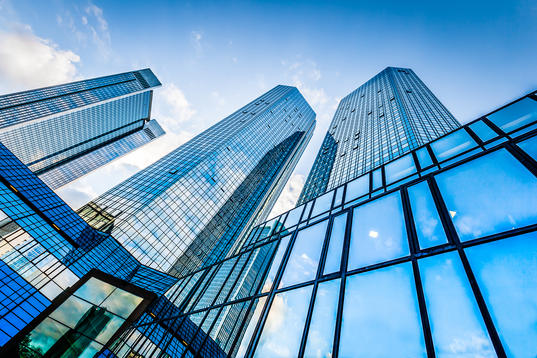2021 is a critical year for climate action, culminating in the COP26 summit in Glasgow in November. There has never been a better time for organisations to challenge themselves on this agenda as a key priority and reflect on what committed net zero action could, and should, look like.
In the run up to COP26, governments across the world are realising the need to be ambitious. The recent Biden Climate Summit contained some formidable announcements, with the USA announcing a 50% reduction in carbon emissions by 2030, compared to 2005 levels. The UK has upped its commitment to a 78% reduction by 2035, relative to the 1990 base level. Japan - another large emitter - also announced an increased ambition, aiming for a 46% cut by 2030, up from their previous commitment of 26% (a figure deemed too conservative by many in the climate community).
Meanwhile, the International Energy Agency (IEA) estimates that energy efficiency improvements can deliver over 40% of the greenhouse gas emissions reductions needed to meet global climate goals. Buildings account for around 40% of global emissions, but renovation rates are still far too slow to meet the Paris Agreement goals, which are now six years old.
As we emerge from the pandemic, workplace and facilities management professionals are preparing buildings for reopening or increased capacity. A safe return to work is paramount, so deploying the right technology to track people’s movements in buildings and ensure the safe occupancy levels, implementing appropriate cleaning standards, and improving air quality, will all help to provide healthy and productive indoor environments; not to mention benefits for public health services.
With a new and evolving workplace model materialising, this is a huge opportunity for workplace and facilities management professionals to demonstrate they are the lynchpin in organisations, marrying the needs of owners, occupiers and the supply chain to create energy-efficient, productive and healthy workplaces in the most sustainable manner possible.
With less than ten years left to halve global emissions in the Climate Decade, it’s vital that we now step up our efforts and drive more organisations to get on board.
G7 Summit
Last week, leaders of the G7 nations pledged to ‘support a green revolution that creates jobs, cuts emissions and seeks to limit the rise in global temperatures to 1.5 degrees.’ They also committed to ‘net zero no later than 2050, halving our collective emissions over the two decades to 2030’. With the USA rejoining the Paris Agreement and the UK’s even more ambitious net zero goals, there is real momentum again in the climate change movement.
The Business Case
Doing more with less energy is good for the bottom line, generating substantial financial savings and improving competitiveness, while increasing employee productivity and wellbeing. Last year’s report by Climate Group and the Alliance to Save Energy found that 21 members of the EP100 initiative (including H&M, Hilton and UltraTech Cement) had collectively saved US$131 million (£93 million), capital that can be reinvested in clean growth.
And beginning the journey does not have to cost the earth. Smart energy measures often come with rapid rates of return on investment and significant financial reward. Advances in smart technologies and digitalisation are providing ways to lower energy bills, reduce risk, and improve operational productivity. For example, smart connected LEDs offer unprecedented energy savings with little upfront cost. They also open up vast opportunities to use the data gathered to make even greater efficiencies, through smart building applications and the Internet of Things (IoT).
The growing number of EP100 member companies and signatories of the Net Zero Carbon Buildings commitment, led by the World Green Building Council, is also demonstrating that carbon reduction is a sensible path.
Climate Group and IWFM
Recognising the need to raise awareness of the benefits of sustainability, and that FMs are key in delivering net zero buildings, Climate Group and IWFM are continuing their collaborative work in this area.
Our partnership will deliver a series of peer-to-peer events on smart energy management to showcase best practice, offer tips for addressing common challenges around energy reduction, signpost the strategies and tools to help achieve targets, and enable the transition to cleaner options.
IWFM have launched their longstanding Sustainability Survey, which will take a pulse check of the sustainability priorities, barriers and opportunities for organisations. The survey is in its 15th year and will be live throughout June 2021.
London Climate Action Week
Climate Group and IWFM will be discussing these issues further in an event as part of London Climate Action Week on 1st July, sign up here.
